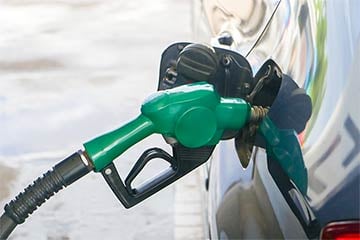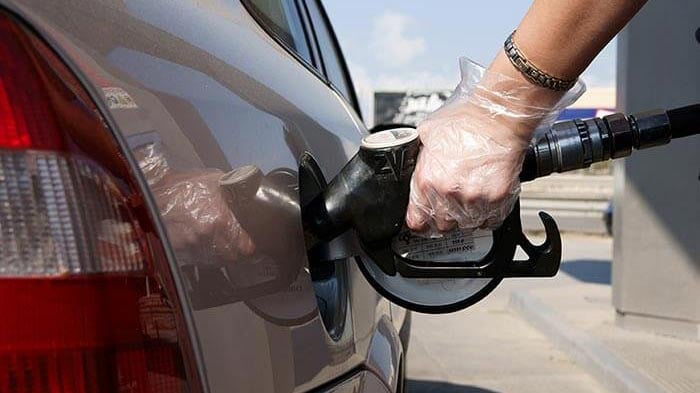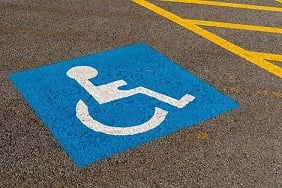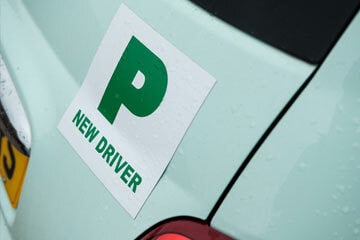This data is from openchargemap.org under the Creative Commons Attribution 4.0 International Public License
Are there enough EV charging points in the UK?
It’s clear that the public are in need of more charging. That’s as more than 10,600 requests were made to local councils for better access to public charging.
But concerns about charging accessibility remain. Despite the growing rollout of chargers, many drivers still feel that public charging infrastructure isn’t keeping up with demand. Nearly 2 in 5 (38%) say there isn’t good charger availability in their local area, indicating the lack of charging access is a key reason some drivers haven’t been convinced of the switch.Even existing EV drivers face challenges when using public chargers. Almost half (45%) have experienced issues such as long wait times or chargers being fully occupied, while 38% have dealt with slow charging speeds. Others report difficulties with payment systems (35%) or being blocked by non-EV vehicles or cars not actively charging in bays (31%). While progress is being made, there’s still work to be done to make EV charging truly accessible, reliable and convenient across the UK.
What are the different types of electric vehicle charging stations?
The type of charging station you use determines how fast you can charge your electric vehicle and how much you pay to charge it.
There are 3 basic types of electric car charging points:
- Slow charge
- Fast charge
- Rapid charge
Slow charge stations generally have a power output of 3-6kW, and include Home electric vehicle chargers. All plug-in electric cars should charge at a slow charging station.
Fast charge stations have a power output of 7-22kW. These stations are the most common, and most plug-in electric cars should be able to charge here.
Rapid charge points have a power output of at least 43kW, but some can go as high as 350kW for cars that can take that kind of charge.
You're more likely to find these charge points at motorway services, though they're increasingly commonplace elsewhere. They're designed to get your vehicle to 80% charge as fast as possible.
Tesla models S, 3, X and Y used to have exclusive access to Tesla Supercharger charge points. But Tesla has announced that it's opening up its Supercharger network to non-Tesla models too.
If you're a motorcyclist, electric motorbikes can usually use the same charging points as electric cars.
How much does it cost to charge an electric car?
The price you pay to fully charge an electric car varies depending on:
- Your car's battery capacity
- Where you charge your car
- Your electricity tariff (if charging at home)
- Whether the charging station has an additional connection fee
If you plan to charge your electric car at home, certain energy suppliers offer special tariffs for EV charging. These tariffs offer discounted rates overnight so you can charge your electric car at a lower cost however, with the current state of the energy market, these tariffs might be difficult to find right now.
Here's what you might expect to pay for different types of charging with certain electric car models:
| Useable battery (kW)++ | At-home charge cost* | Fast charge cost** | Rapid charge cost*** | |
|---|---|---|---|---|
| Kia Niro | ||||
|
Kia Niro
|
64.8 | £22.03 | £36.94 | £44.71 |
| Tesla 3 | ||||
|
Tesla 3
|
57.5 | £19.55 | £32.78 | £39.68 |
| VW ID3 | ||||
|
VW ID3
|
58 | £19.72 | £33.06 | £40.02 |
+Models were selected as having the largest number of registrations in 2021, according to Department for Transport statistics.
++ Useable battery capacity taken from EV Database
* Based on electricity tariff of 34p per kWh
** Based on BP Pulse fast charge tariff of 57p per kWh
*** Based on LoCity rapid charge tariff of 69p per kWh
What are the differences between Type 1 and Type 2 charging sockets?
The type of connector you have determines which electric vehicle charging stations you can use. It also limits how much you can charge your car. It should be easy to see what type you have by looking at the connector itself:
Need more help?
How do I pay to charge my electric car?
Depending on what charger you use, there are several ways you can pay to charge your electric vehicle:
- Contactless
- Smartphone app
- Membership-based
Contactless payments let you pay for your charge as you would most other purchases. Tap your card or phone against the contactless pad and the payment should be taken directly from your bank account. This is the easiest way to pay. All new charging points are expected to offer a contactless payment option.
Smartphone apps let you access certain public charge points and manage your payments. But you might need several apps to access EV chargers across different networks.
Membership-based charging services are available such as the BP Pulse network, which offers discounts for members.
These services might also offer a subscription model, where you pay a monthly fee for an even bigger discount on your EV charge tariff.
Depending on how much you plan to use the charge points in a specific network, a subscription could be more cost-effective.
Why do rapid charge stations charge to 80%?
Is it free to charge an electric car?
Depending on where you go, some charging points are free to use. Often, these charging stations are found in supermarket car parks or near certain retailers.
Usually, these electric vehicle charge points are free for customers or visitors.
For example, Tesco has partnered with Pod Point and Volkswagen to install free electric vehicle charge points across hundreds of its UK stores. Certain locations at Aldi, Lidl and Sainsbury's also offer free electric vehicle charging.
These free stations are likely to be fast charging points.
When you use our electric car charging map, you can select to see only free nearby electric vehicle charging stations to narrow your search.
How many electric vehicle charging stations are there in the UK?
According to Open Charge Map, there are over 32,000 electric car charging stations at 14,000 sites across the UK. But this number may vary depending on what charging station tool you use.
It's estimated that there are over 1 million plug-in EVs registered in the UK. This means that there are around 31 electric vehicles for every electric car charging station, not including home chargers.
As you might expect, these electric car charge points tend to be clustered in cities and other urban areas.








